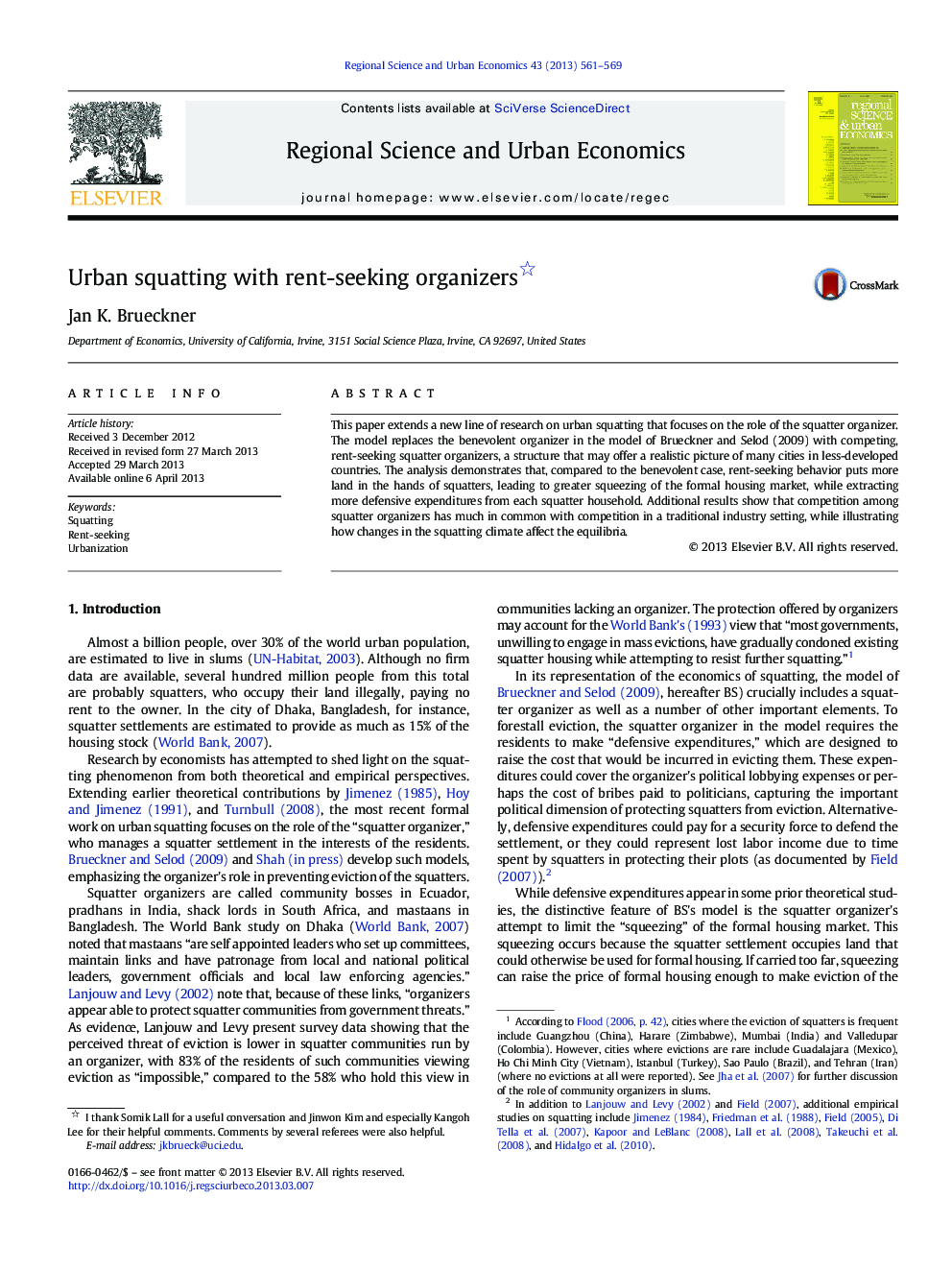| Article ID | Journal | Published Year | Pages | File Type |
|---|---|---|---|---|
| 983363 | Regional Science and Urban Economics | 2013 | 9 Pages |
•Since millions of urban residents are squatters, theories of squatting are needed.•Brueckner and Selod (2009) extended to include a rent-seeking squatter organizer.•Organizer maximizes profit while avoiding eviction of squatters.•Land consumption and defensive expenditures are higher than in benevolent case.
This paper extends a new line of research on urban squatting that focuses on the role of the squatter organizer. The model replaces the benevolent organizer in the model of Brueckner and Selod (2009) with competing, rent-seeking squatter organizers, a structure that may offer a realistic picture of many cities in less-developed countries. The analysis demonstrates that, compared to the benevolent case, rent-seeking behavior puts more land in the hands of squatters, leading to greater squeezing of the formal housing market, while extracting more defensive expenditures from each squatter household. Additional results show that competition among squatter organizers has much in common with competition in a traditional industry setting, while illustrating how changes in the squatting climate affect the equilibria.
